Chinchillas are adorable and furry pets that require specific dietary needs to ensure their health and well-being. In this comprehensive guide, we will delve into the world of chinchilla food and provide you with all the information you need to know to keep your pet chinchilla healthy and happy. From the importance of a balanced diet to the best food options and feeding guidelines we’ve got you covered.
The Importance of a Balanced Chinchilla Food
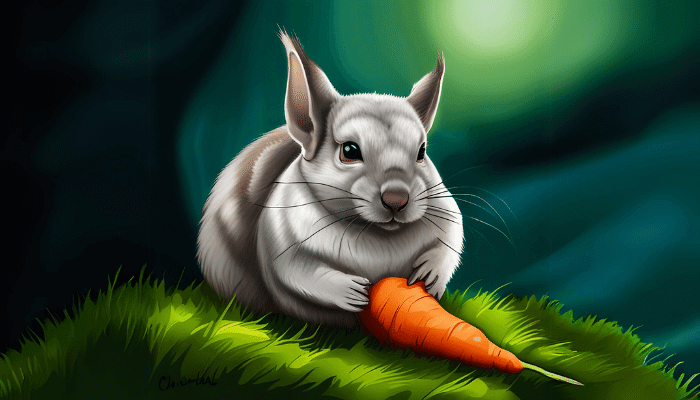
A balanced diet is crucial for the overall health and well-being of chinchillas. Chinchillas have sensitive digestive systems, and feeding them a high-quality diet that meets their nutritional requirements is essential. In the wild, chinchillas have evolved to consume a diet rich in roughage, mostly consisting of grasses, leaves, and twigs.
This high-fiber diet helps maintain their teeth and digestive system. When domesticating chinchillas, replicating their natural diet as closely as possible is key to their health and happiness.
Choosing the Right Chinchilla Pellets
When it comes to chinchilla pellets, it is essential to choose a high-quality, formulated diet specifically designed for chinchillas. Look for pellets that have a protein content of 16-20%, low fat content of 2-4%, and high fiber content of 15-20%.
These pellets provide the necessary nutrients for your chinchilla’s well-being. Avoid mixtures of loose items as they may not provide a balanced diet if your chinchilla only eats selective parts of the mix.
Supplementing with Fresh Grass Hay
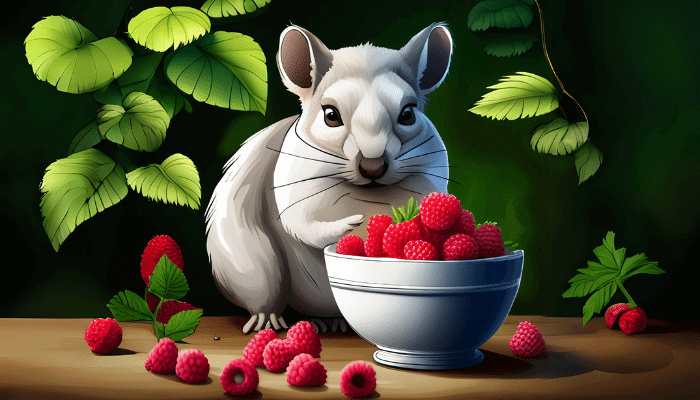
In addition to chinchilla pellets, it is vital to supplement your chinchilla’s diet with fresh grass hay. Hay helps maintain their dental health and keeps the digestive system functioning properly.
Quality grass hay varieties such as orchard grass and Timothy-grass are excellent options. Offer your chinchilla as much hay as they want each day, ensuring it is fresh and free from mold or dampness.
Feeding Amounts and Frequency
Most chinchillas will consume around one to two tablespoons of pellets per day. It is advisable to split the daily portion into smaller feedings, such as a tablespoon in the morning and evening.
Chinchillas tend to be more active and eat during the evening hours, so offering a larger portion during this time can align with their natural behaviour. Consistency in feeding routines is essential to keep your chinchilla comfortable and healthy.
The Role of Treats in a Chinchilla’s Diet

While treats can be an enjoyable addition to your chinchilla’s diet, they should be given sparingly. Treats should never exceed more than a teaspoon per day to prevent overfeeding and maintain a balanced diet.
Caution should be exercised with treats that are high in sugar or fat content, such as raisins or dried fruits. These should be given in small quantities and infrequently to avoid causing health issues.
Safe and Healthy Treat Options
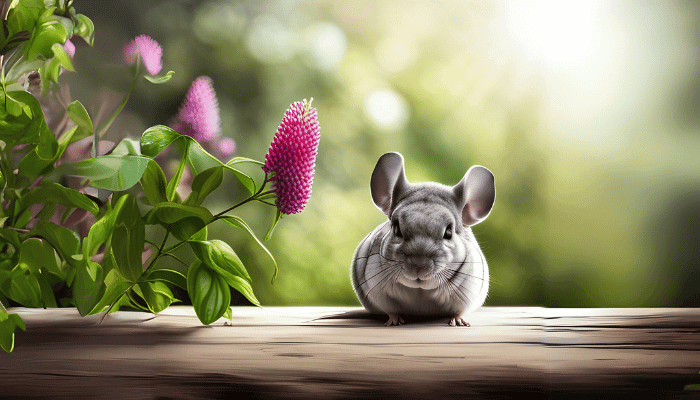
There are several safe treats that you can offer your chinchilla, including:
Wooden Chews: Chinchillas love to chew to keep their teeth healthy and short. Apple sticks make great chews for chinchillas, and they also enjoy apple, bamboo, pear, elm, dogwood, and willow woods.
Dried Herbs: Chinchillas can benefit from a variety of dried herbs. Rosemary, hibiscus, strawberry leaves, blackberry leaves, and dandelion roots are some great choices. They can be hand-fed or mixed into their daily food in small amounts.
Dried Fruits: Dried fruits like bananas, apples, or pineapple can be fed to your chinchilla as a treat, but they should be given sparingly due to their high sugar content. Dried cranberries and raisins also make popular treats, but remember to give them only in small amounts.
Fresh Fruit: Occasionally, you can offer your chinchilla a small piece of fresh fruit like pear, apple, or strawberry. It should be cut into a bite-sized piece and given once weekly.
Marigold Flowers and Rose Hips: Dried marigold flowers and rose hips are great treat options. They contain various minerals and vitamins and can be given once or twice a week in small amounts.
To maintain a balanced diet, treats should not constitute a major portion of your chinchilla’s food intake. Therefore, their primary food source needs to be high-quality chinchilla pellets and fresh grass hay.
Feeding Chinchillas Twigs and Branches

Safe woods for your chinchilla to chew on include apple (not crab apple), ash, bamboo, dogwood, elm, pear, poplar, rose, and willow. The wood must be untreated and free from pesticides or other chemicals. Providing branches from these trees stimulates your chinchilla’s natural foraging behavior and helps to keep their teeth healthy.
Warning: Avoiding Toxic Foods
While it can be tempting to share your food with your chinchilla, many common human foods are toxic to them. Avoid feeding your chinchilla citrus fruits, corn, watery fruits like watermelon, nuts and seeds, and store-bought chinchilla treats that may be high in sugar, fat, and preservatives.
Conclusion
Providing a balanced diet is essential to your chinchilla’s health and well-being. Remember, their diet should primarily consist of high-quality chinchilla pellets and fresh grass hay. Supplementing with safe treats like dried herbs, fruits, and wooden chews can bring variety and enrichment to their lives, as long as these are given sparingly.
Always pay close attention to your chinchilla’s diet and note any changes in their eating habits or physical health, consulting your vet promptly if any concerns arise. With a correct diet, your chinchilla can lead a long, healthy, and happy life.
Frequently Asked Questions
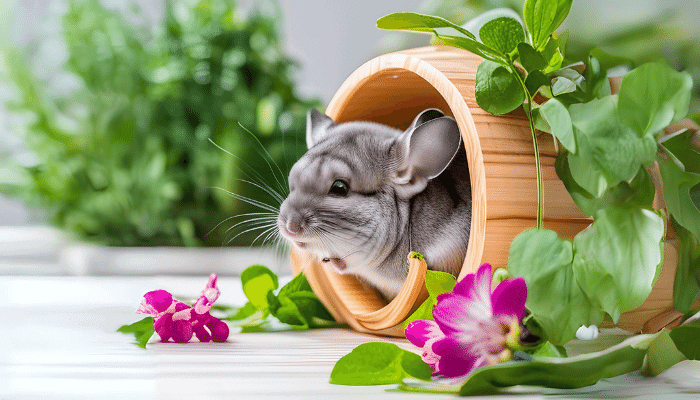
Can chinchillas eat fruits?
Yes, chinchillas can eat some fruits, but only in moderation due to their high sugar content. Dried fruits like banana, apple, or pineapple can be given sparingly (2-3 times per week). Fresh fruits like pear, apple, or strawberry can be offered once a week. Always provide fruits in small bite-sized pieces.
How much pellet food should I feed my chinchilla?
The typical amount of pellet food for a chinchilla is around one to two tablespoons per day. The portions should ideally be split into smaller feedings, offered in the morning and evening.
Is alfalfa hay suitable for adult chinchillas?
While alfalfa hay is nutritious, it is also rich in calcium and calories. It is generally recommended only for young, growing chinchillas or pregnant or nursing females. Adult chinchillas should primarily be fed grass hay, like Timothy hay or orchard grass hay.
What are the dangers of feeding corn to chinchillas?
Corn can be harmful to chinchillas due to its potential to grow mould or fungus from improper storage. Also, corn can cause gastrointestinal issues, potentially leading to deadly bloat.
Is it safe to give chinchillas raisins as treats?
Yes, chinchillas can have raisins as treats, but you should offer them sparingly due to their high sugar content. A tiny amount, up to one raisin per day, would be considered safe for a chinchilla.
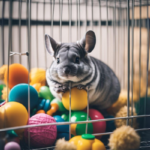
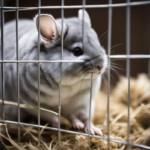
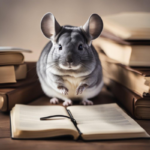
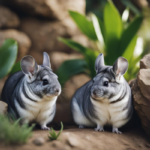
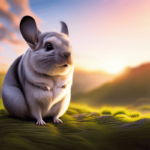
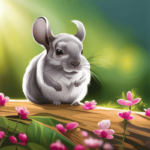
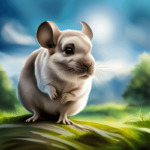
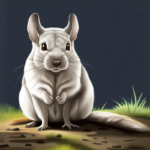
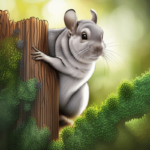
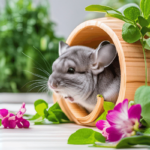

16 thoughts on “Best Food for Your Chinchilla: Chinchilla Food Guide”